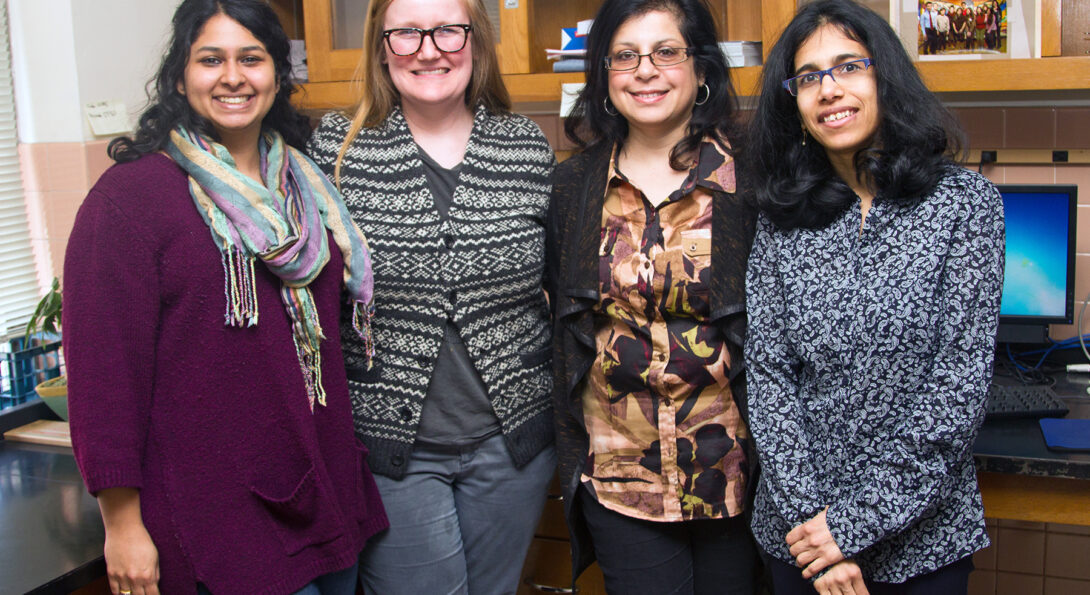Building bridges for Chicago refugees with disabilities

A new cohort of participants have begun working with the Partners of Refugees in Illinois Disability Employment program, a University of Illinois at Chicago initiative that connects refugees with disabilities to education and resources on navigating the local job market.
Known as PRIDE, the program seeks to ensure refugees with disabilities understand their rights — namely Equal Employment Opportunity — and to provide connections to the governmental and community-based groups that are available to offer support.
“PRIDE is a bridge,” said Tedros, a refugee from Eritrea, a country in Africa, who resettled in Chicago in 2017 and began working with PRIDE as part of the second cohort. “When I came to Chicago, it was very frustrating. It was my experience that the resettlement agencies didn’t care as much about what happened to me once I was resettled and the lack of information specific to my situation, even though I met many people from different agencies, was difficult.”
Tedros, like the other 37 participants who already have enrolled in the PRIDE program and continue through additional activities, in addition to being a refugee, has a disability.
“It wouldn’t be right to mention just one thing helpful about PRIDE,” said Tedros, who spent 17 years as a journalist before it became unsafe for him to remain in his home country. “When it comes to employment, there is always discrimination, and I need to be armed with information to reach my goals. Building connections and networking means a lot, and PRIDE is doing something others haven’t done.”
Rooshey Hasnain, one of the UIC researchers who co-leads the programs with Mansha Mirza, Kathryn Duke and Sumithra Murthy, said that Tedros’s experience is common, and that PRIDE is the only program in the nation focused on examining refugee status and disability status in the context of employment and career paths.
“Through PRIDE, we take a multidimensional view of the employment journey for refugees with disabilities,” Hasnain said. “Our program is built on a network of community partners that help us to support a group of people with diverse backgrounds, disabilities and goals. We do not have a one-size-fits approach to our program; instead, we combine group education with one-on-one career planning to help bridge a connection between an individual and a helpful agency, or agencies in many cases.”
Since PRIDE launched in 2017 with a three-year grant from the National Institute on Disability, Independent Living, and Rehabilitation Research, it has grown to include more than 60 partners.
“PRIDE is about filling a gap in the system,” said Francisco Alvarado, director of operations for the Division of Rehabilitation Services at the Illinois Department of Human Services, one of PRIDE’s longest partners. “By helping refugees with disabilities enter the workforce on their own terms, based on their unique skills, we are building richer and stronger Illinois communities, which benefit everyone.”
“We’re really trying to be comprehensive but also practical in terms of what could be the most useful tools for refugees to obtain employment or advance their careers,” Hasnain said.
In addition to employment support, learning about entrepreneurship or additional education also can help refugees break through some of the employment barriers that they face.
Other UIC partners in the PRIDE program include faculty in the Department of Disability and Human Development, the College of Business Administration and the Institute for Entrepreneurial Studies, the Great Lakes ADA Center and the Assistive Technology Unit.
Additional community partners include Asian Human Services, Iraqi Mutual Aid Society, Syrian Community Network, Heartland Human Care Services, IGNA Relief, Karam Foundation, the Mayor’s Office for People with Disabilities, Access Living, Upwardly Global, Career and Business Services and the Rogers Park Chambers of Commerce, among others.
“We need to break through these stereotypes — the disability stereotype, the immigration stereotype and the refugee stereotype — and provide refugees with disabilities that same access to opportunities that refugees without disabilities are gaining,” Hasnain said.
New PRIDE cohorts of French- and Amharic-speaking refugees will begin in June.